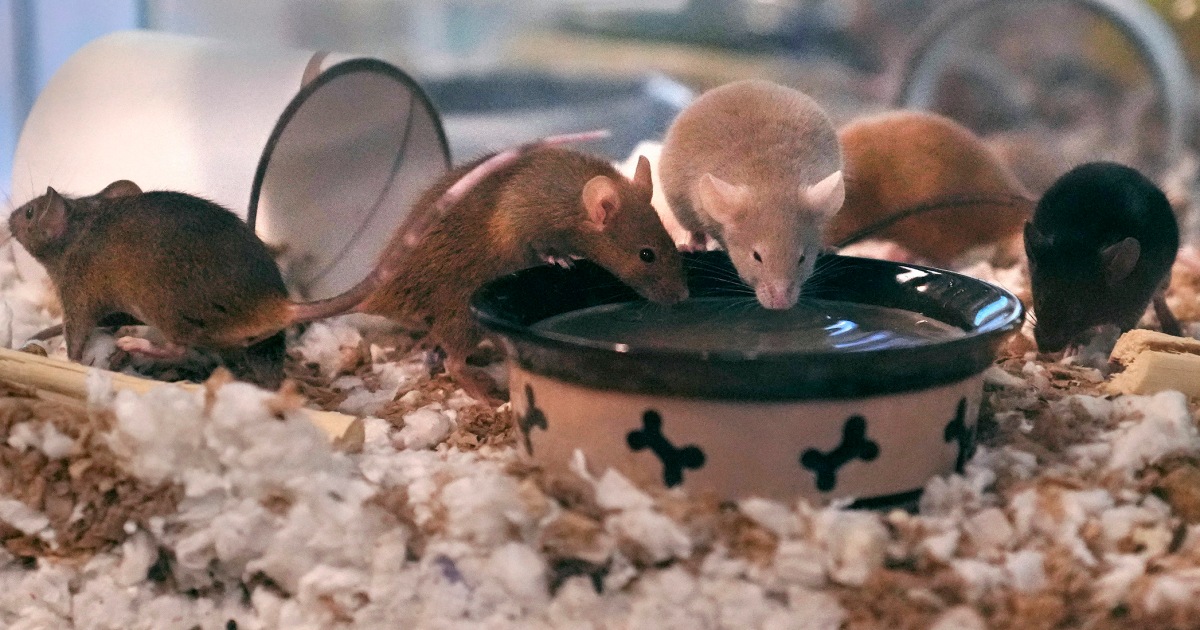When a man arrived at a New Hampshire animal shelter last week claiming he wanted to surrender 150 pet mice, the shelter was ready to take them in. But the problem soon became much more mouse-ive when he clarified that he had 150 tubs full of mice to surrender, not 150 individual rodents.
The overwhelmed mouse owner initially brought 73 mice last Monday, the New Hampshire Society for the Prevention of Cruelty to Animals said in a Thursday news release. Another 450 were transferred shortly thereafter, and staff made trips to his home on Tuesday and Wednesday, filling vans with tubs full of mice.
The shelter said they expect the number of mice to grow to nearly 1,000.
The reason behind this whisker-curling number is a rapid rodent reproduction rate. The NHSPCA that the mice were not separated by sex and were reproducing uncontrollably. With a gestation period of only about 20 days, mice can reproduce incredibly quickly, and many of the females arrived already pregnant.
The NHSPCA also said they were previously living in “filthy plastic tubs that hadn’t been cleaned in what appeared to be a long time.”
They’ve put out a call to the entire New England area through the New England Federation of Humane Organizations for assistance with transferring some mice out of the NHSPCA to make room for the incoming tubs, the release stated.
“We have never seen anything like this,” Savannah Alcero, director of animal and veterinary services at the NHSPCA, said in the release. “And the longer we wait to get all of the mice out of their terrible living conditions, the greater the likelihood is that the numbers will continue to grow.”
These are pet mice, or “fancy mice,” the shelter confirmed in the release. They said these mice are highly social, prefer to live in groups and are relatively easy to care for. Most are already available for adoption, with the exception of those on pregnancy watch or in need of veterinary care.
Community members are encouraged to help by adopting, fostering or donating to the shelter.


